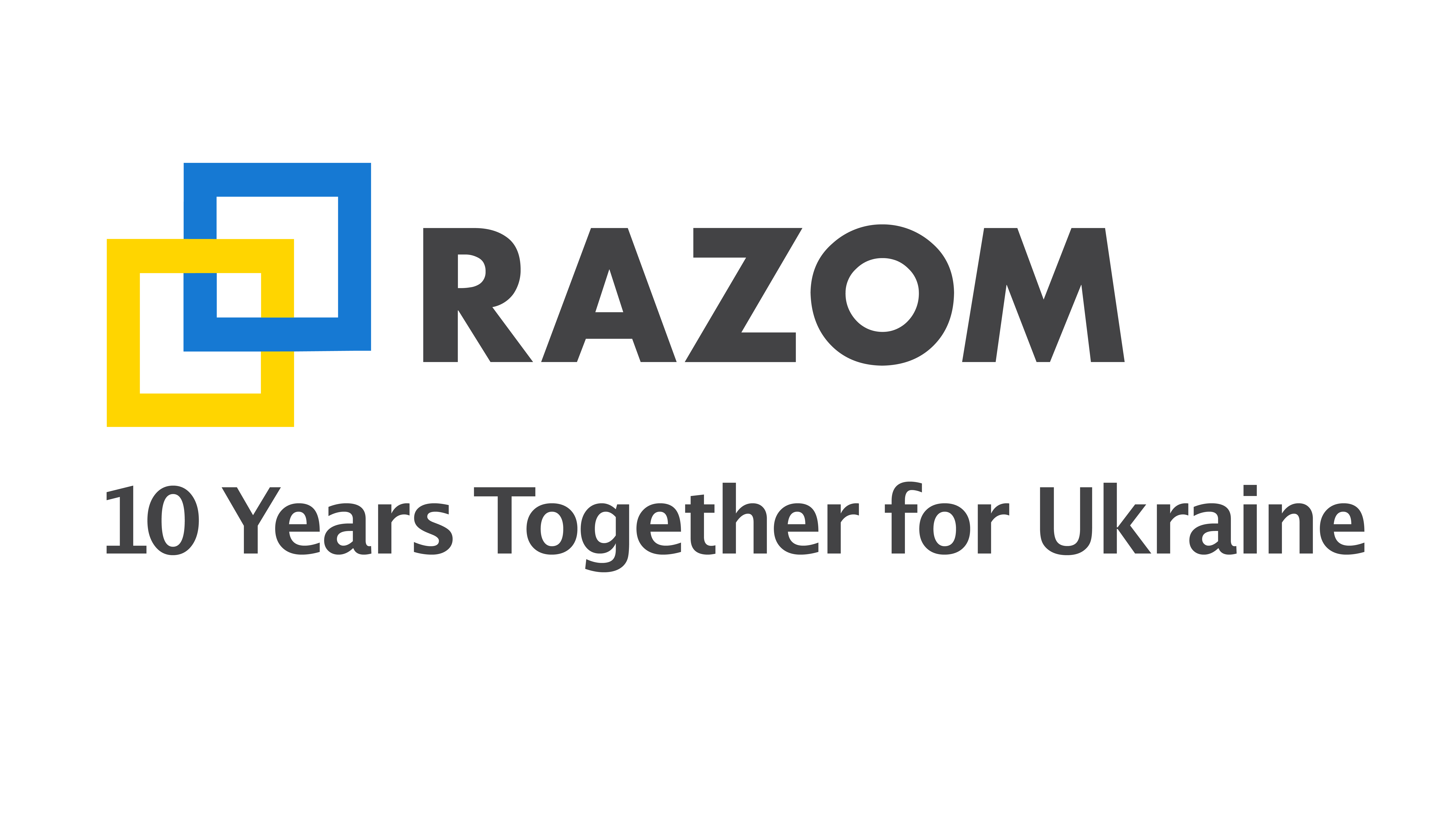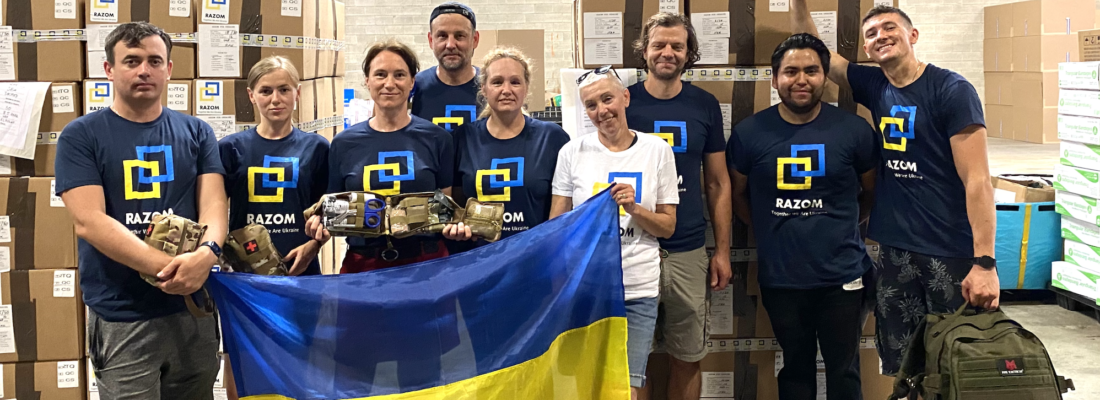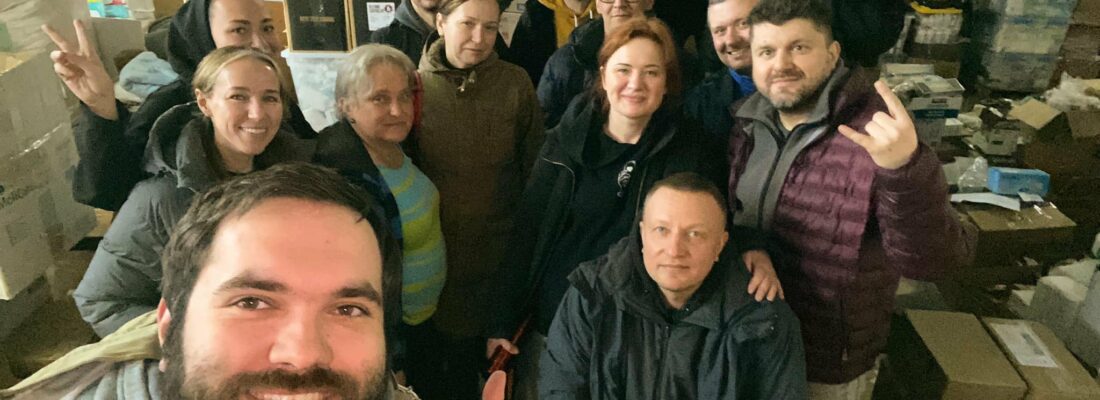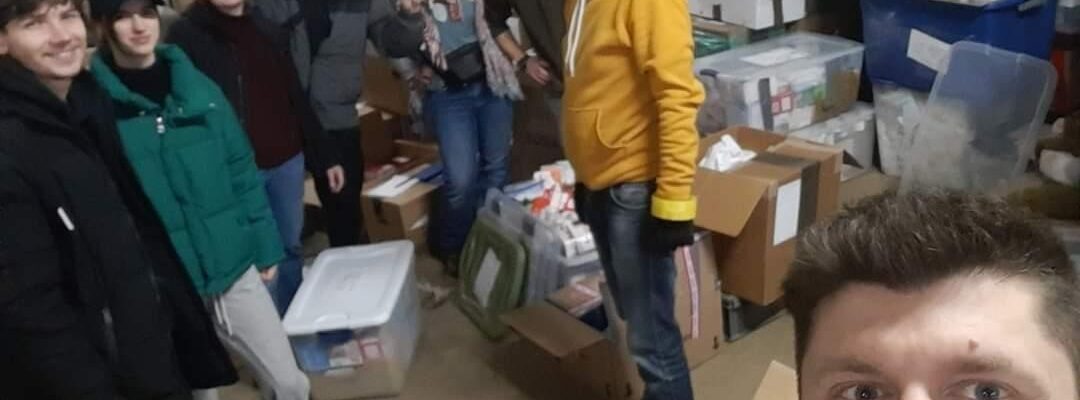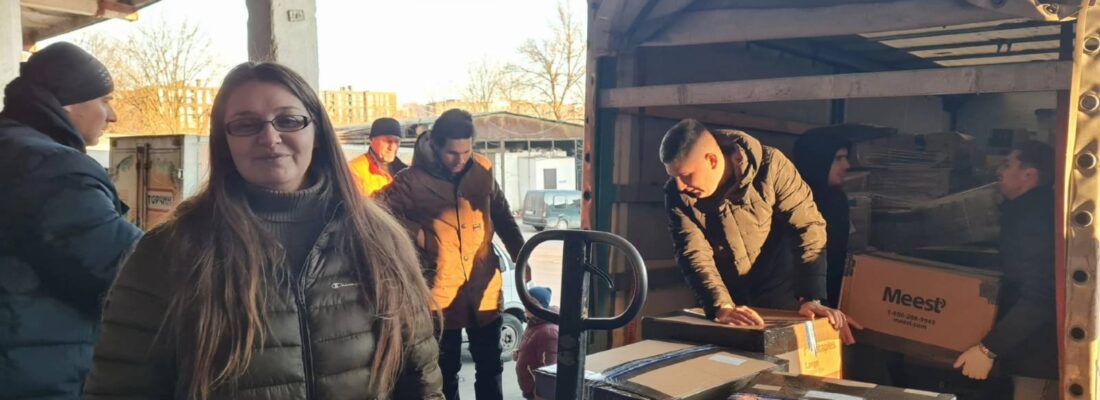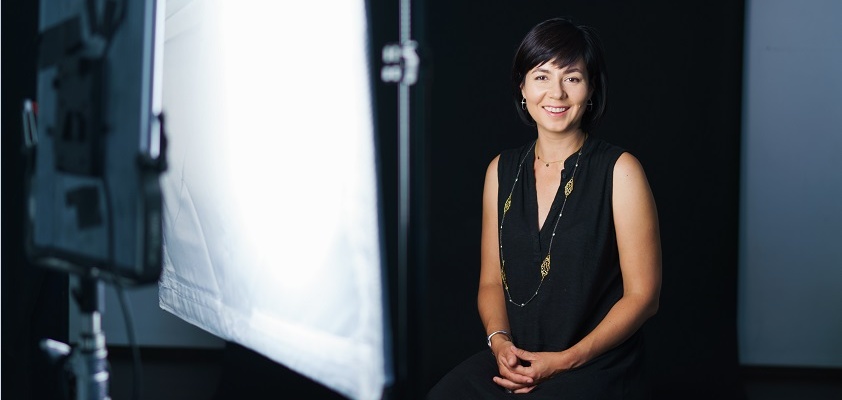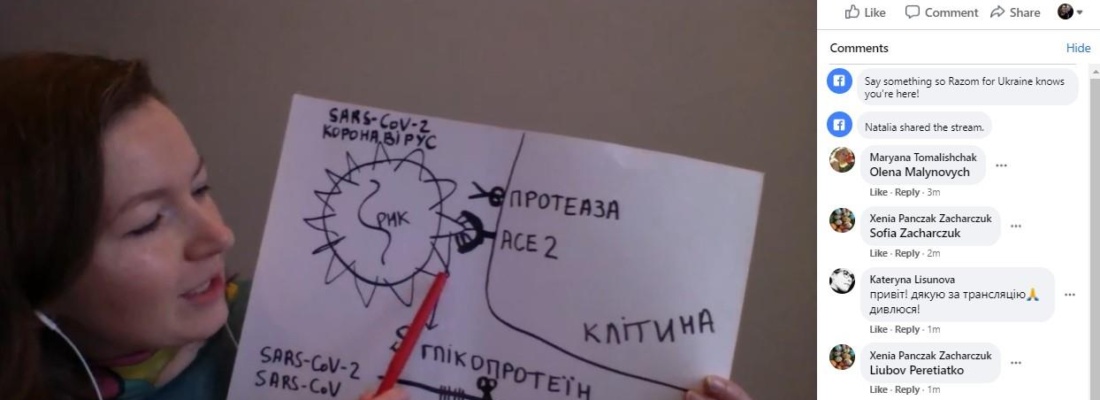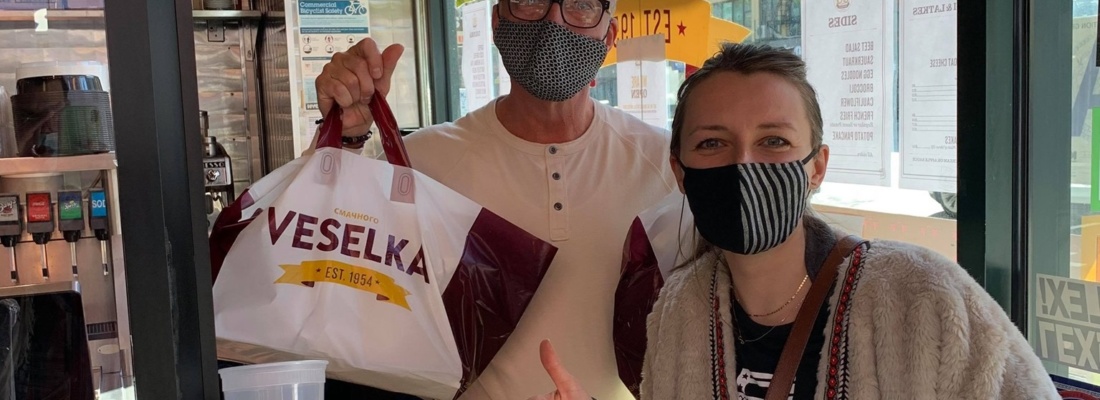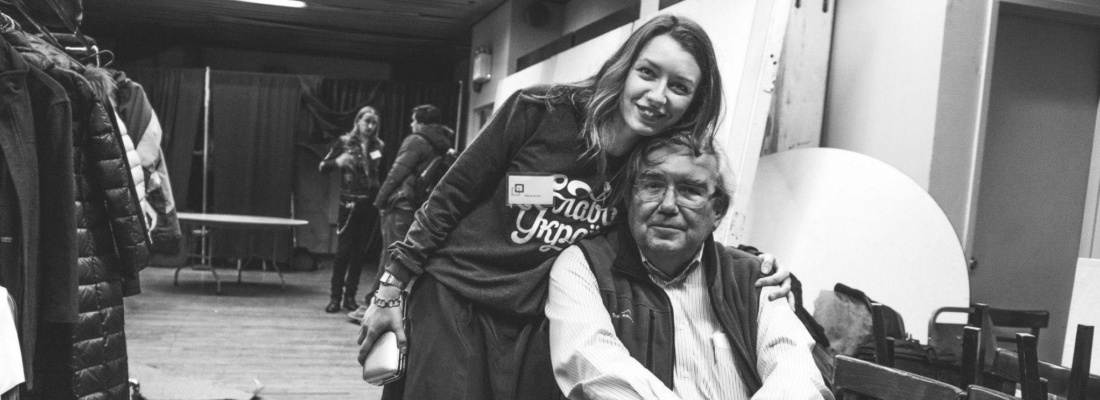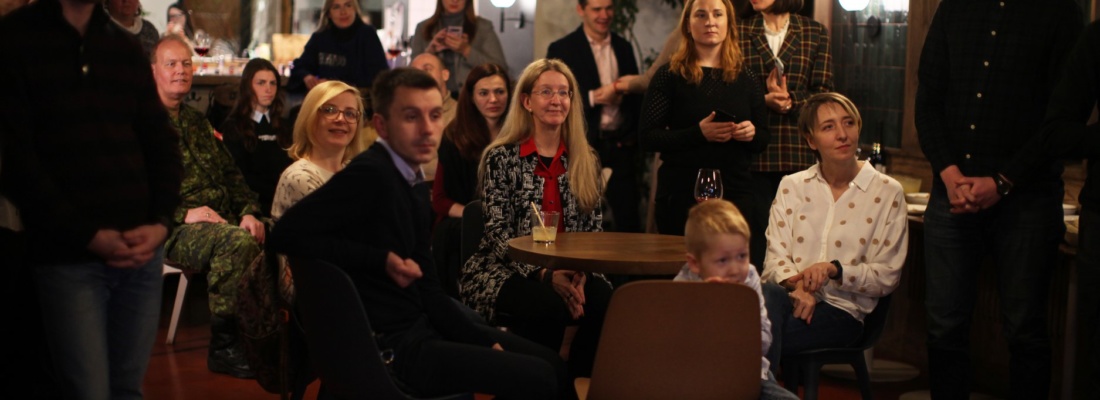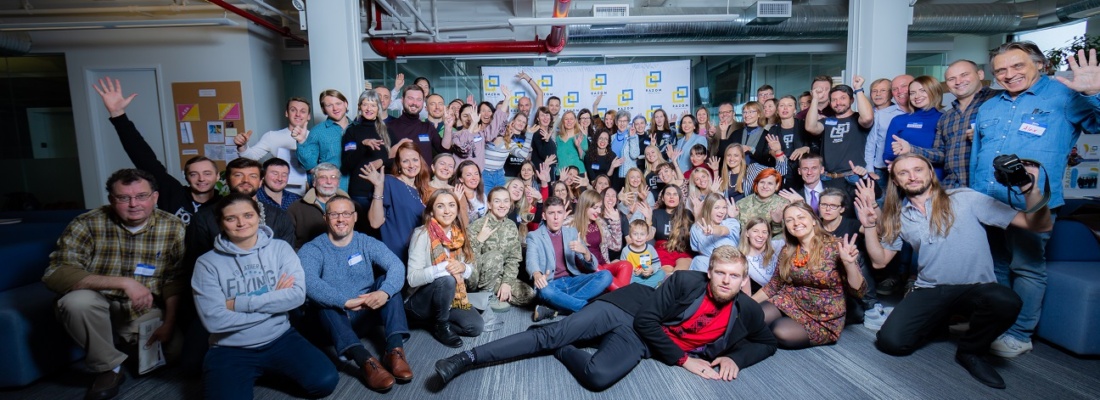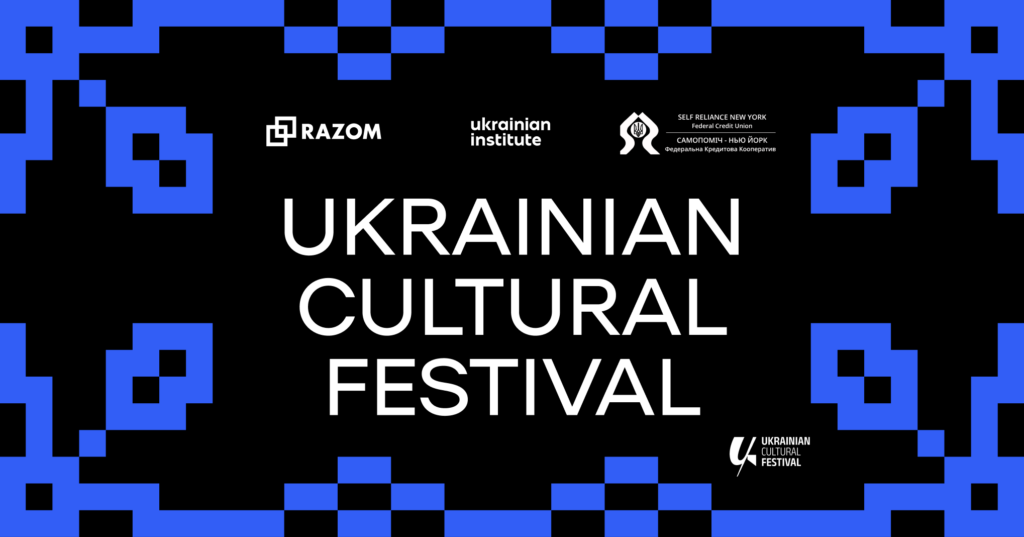At the Meest warehouse in Port Reading, New Jersey, hundreds of Razom volunteers of all ages and backgrounds have been hard at work since the early days of russia’s full-scale invasion. They are packing individual first aid kits (IFAKs) and tactical medical backpacks that get shipped to Ukraine and distributed to those who might find themselves in need of first medical help across the country, saving limbs and lives.
With music playing in the background, an organized assembly line powered by volunteers produces 6,000 to 8,000 IFAKs every week. The team recently broke a record – packing over 3,000 IFAKs in one shift.
Andriy Boychuk, who helps organize the process, starts his volunteer days at 7 a.m. Supplies bought off Razom’s Amazon wishlist get delivered, opened, and sorted at his home. He takes that over with him to the warehouse to start his shift at 9 a.m.

There are 15 items that go into an IFAK from tourniquets to gauze to burn dressing, and the warehouse works like a conveyor belt with people responsible for packing about three items each into the kit. Before the IFAK is closed, colorful postcards drawn by kids through the Encourage Ukraine initiative are folded in. Those IFAKs go into boxes, and everything is systematized and labeled so people on the receiving end in Ukraine know exactly what to expect, Andriy said.
Prior to February, Boychuk said he didn’t even know what the term “tacmed” – tactical medicine – meant. A marketer by trade, he spoke to Razom co-founder Mariya Soroka and simply said he wanted to help in any way possible. Today, he is the tacmed coordinator.
The war is not over, Andriy Boychuk said. The war is not a trend or fasion that can be trendy today and not tomorrow. Until it’s done, we have to take action, volunteer, donate. Everyone has to be active.
Yuliia Shama had volunteered with Razom’s Co-Pilot Project and participated in the organization’s book club before russia’s invasion. The week before the war started, Razom issued a call for help with medical donations and Yuliia joined the initiative. She was assigned to the emergency response team working on tactical medicine including finding and procuring important supplies, and consulting with military doctors and other medical experts on what would be needed.

In the early days of the project, approximately 40 people in the United States, Europe and Canada were calling manufacturers and suppliers asking for quotes and looking for high-quality, licensed, and certified supplies, especially high quality tourniquets. “It was 24/7 work for many people to get these quotes and do negotiations,” she said.
In the early weeks, many suppliers donated or waived fees when they found out supplies would be heading to Ukraine. Within three days, the Meest warehouse was full of donations and Shama knew a detailed process and well-organized team was the best way forward.
Today, she’s managing the project in the warehouse and the process is completely streamlined from where to order items to tracking and packing. Donations to Razom are funding purchases of bulk medical supplies going into IFAKs and backpacks.
The most amazing thing, Yuliia Shama said, is to realize that many volunteers only recently met and come from very different backgrounds. We are a very effective team, and as a team everyone is so great. We are working with a lot of understanding.
Shama, who is originally from Kyiv, is in the warehouse three to four days a week and does inventory and makes sure everything is ready before packing starts. She keeps in touch with the supply team to know what is being delivered and manages the other coordinators.
Like many other volunteers, Yuliia is doing all of this on top of a regular job and lives an hour’s drive from the warehouse. Together with Anna Shapoval, who volunteers as a type of HR coordinator for our volunteer network, she found other volunteers and now there’s a team of 20 coordinators. A Signal group chat with over 500 members is moderated by five volunteers who answer questions, provide information, and help people sign up for shifts. As many as 150 people come to volunteer every week, she added.
“This project is on a roll already for five months involving a great amount of human hours of volunteer work that involves tons of communications,” she said.
Shama is immensely grateful to all the people and organizations contributing time, money, and energy to support Ukraine. “There are no safe cities or territories in Ukraine right now,” she said. “It’s important to continue to support Ukraine in any possible way to stop this terror.”
And Razom found a terrific partner working with Meest, Yuliia Shama said. “Meest are the best partners you can ever dream to have.”
In the early days of the war, Razom volunteers and board members approached Meest-America, Inc. about shipping humanitarian aid. They were already familiar with Razom and had lost nearly 85% of its business when the war began. Working together, they were able to revitalize their business on the one hand, and on the other, they were already involved in shipping humanitarian aid. The partnership was a no-brainer.
Razom’s website and Meest’s system are now connected for tracking humanitarian aid that is arriving at the warehouse, and the Razom team is using about 15% of the 92,000 square foot warehouse for packing IFAKs. Donations to Razom cover the costs of shipping aid and the Meest team works on areas including receiving shipments, pallet prep, documentation, and organizing export shipments.

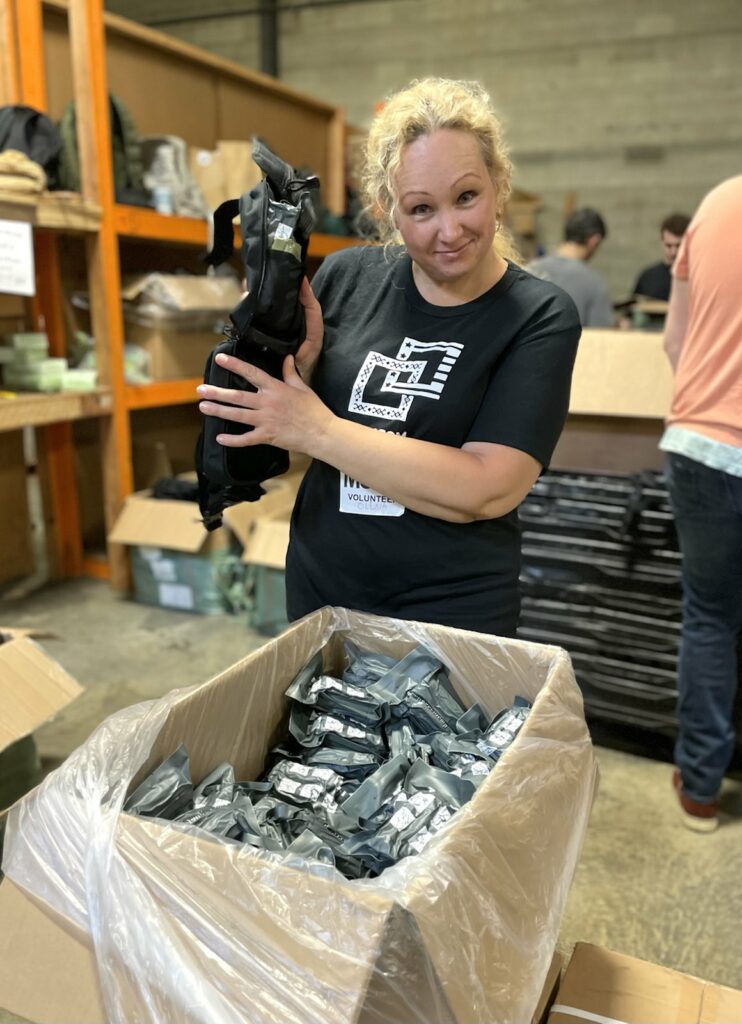
Sergiy Blednov and his wife Olena Blyednova began volunteering in the middle of March. Living only 25 minutes from the warehouse, Sergiy arrives in the morning and makes sure things are organized so volunteers can begin packing aid without any delay. As a coordinator, he organizes items, informs colleagues of any materials running low, and keeps track of all inventory in a spreadsheet. He helps oversee and control the process from getting items to the warehouse all the way to preparing shipping.
Blednov, who works remotely for an IT company, is able to arrange his working day to fit with volunteering. He’s also taken on other crucial responsibilities including bringing pizza at lunchtime and picking music stations to listen to as they pack. With high summer temperatures, Sergiy is installing fans to make sure it’s cooler and volunteers are comfortable working.
For the Blednovs, who have family in Ukraine including their own daughter who went to volunteer with female veterans, volunteering is critically important work.
The war hasn’t finished yet, says Sergiy. We are still fighting and we need more help… We are saving lives and that’s a good reason to help Ukrainian soldiers. But it’s not just for soldiers, it’s for people living in Ukraine with shelling. It’s what we have to do.
For Olena, it’s important to get to know volunteers, make sure every volunteer is comfortable and feels welcomed and also answer any questions on Ukraine. Along with packing, she’s the photographer for the group and posts plenty of photos, so everyone remembers all the volunteers who have come to help.
“It’s tiring work, but when we are all together it’s like family. We will keep going as needed,” she said.

Neil Gussman, a retired US veteran, commutes from Lancaster, Pennsylvania, leaving around 6:30 a.m. to drive to the New Jersey warehouse several times a week. Gussman, who has no direct ties to Ukraine, walked into Razom’s East Village office soon after russia’s full-scale invasion, and said he wanted to help. Throughout his career, he’d worked in a grocery warehouse, had experience working at a freight terminal, and as a tank commander in the Army moving supplies. He knew he could help Razom’s efforts.
“Ukraine is on the right side. They got invaded for no reason at all,” he said.
Neil, who has documented his volunteer work on his personal blog, keeps all the boxes on the production line full and has memorized where everything is located – “as soon as something gets low, I fill it up,” he said.
He’s enjoyed the camaraderie of working in the warehouse. “I’m going to keep volunteering. If there’s anything else I can do, I’m going to do it,” Neil said. “Making these medical kits, it really makes me happy to do it, so I’ll keep going.”
Julia Contino saw a Razom Instagram post asking for volunteers and she and her husband Joey signed up and started volunteering in April. They’ve been coming once or twice a week ever since working full shifts from 9 a.m. to 5 p.m. or half shifts from 1 p.m. to 5 p.m. Joey has become a warehouse coordinator. When Julia’s sister Iryna arrived from Ukraine, she joined in making it a family effort.

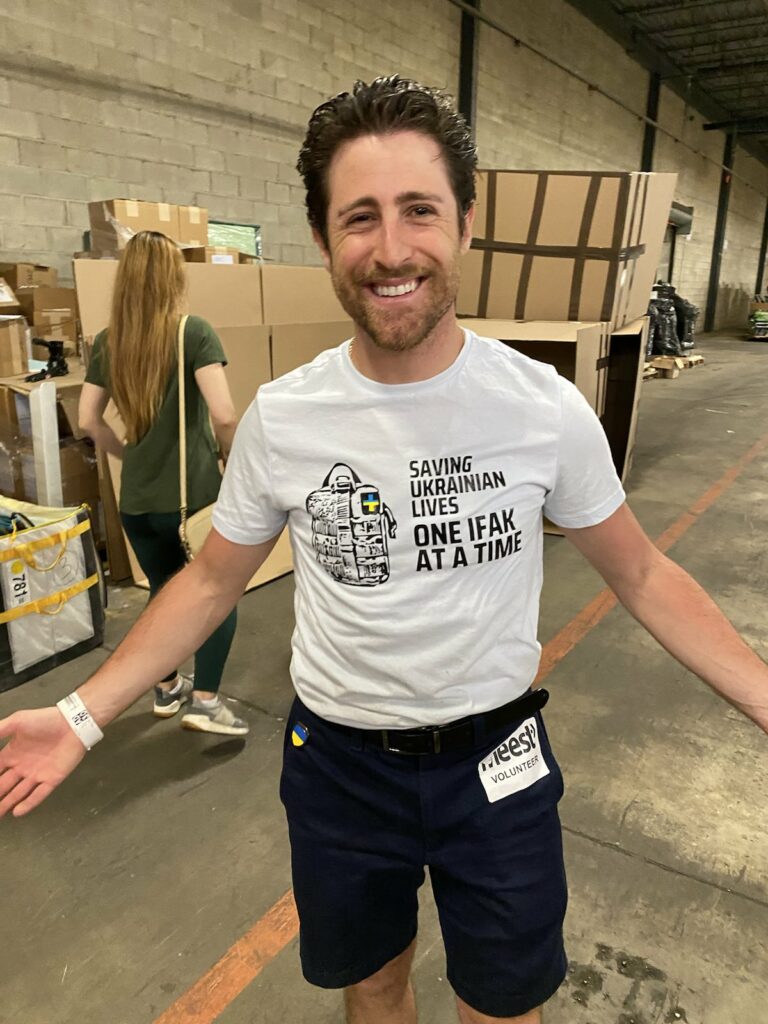
“We jump in and pack all the IFAKs. It’s like an assembly line. Once we start, we don’t finish until they are pushing us out and they are closing the warehouse,” Contino said.
Julia moved to the U.S. from Ukraine in 2011 and still has family in Ukraine and friends serving on the frontlines of the war. These days she and her husband carefully plan out their work schedules weeks in advance to make time to volunteer. Together they organized a walkathon to help Ukraine and collected $15,000 in donations for Razom before they started going in to volunteer. They’ve been able to see where the money they raised is going and how it is helping, she said.
Every time Julia is packing she thinks to herself that the next person to open the first aid kit could be a soldier or a wounded person. “Every time you pack it, you put a little bit of your soul into every one of those IFAKs,” she said. As media attention fades around the war, Contino said “we cannot afford to stop, if we stop Ukraine will disappear… we have to keep going. It doesn’t matter how tired we are.”

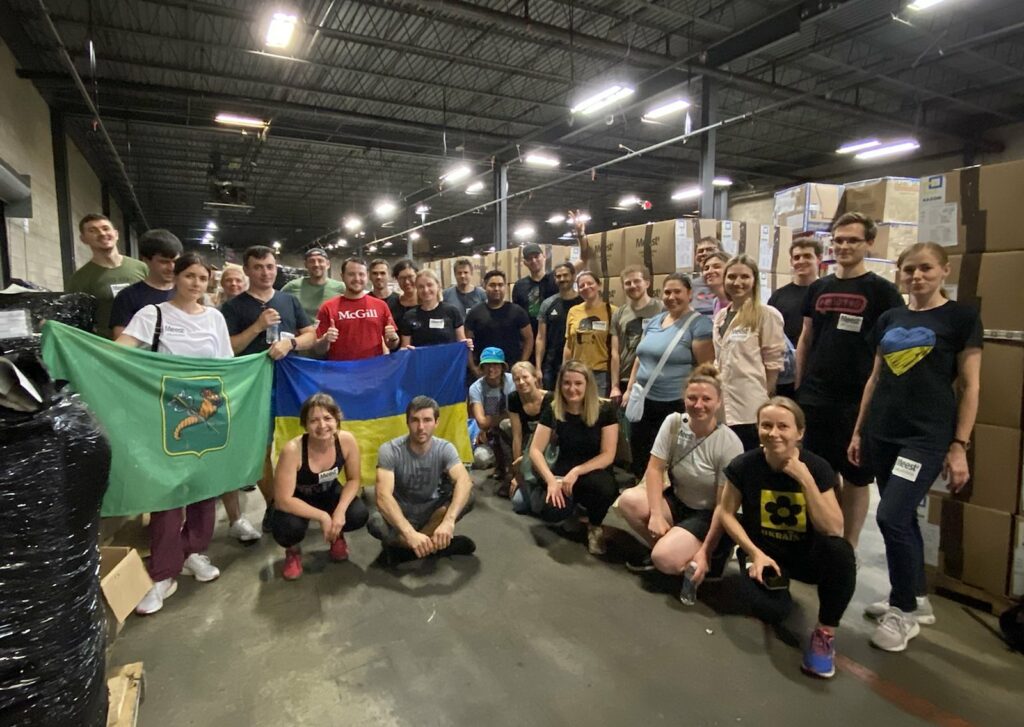
And it’s not just volunteers coming into the warehouse in New Jersey that support the medical aid efforts. There are two main procurement hubs – one is in Canada managed by Antonina Kumka, and second, on the other side of the country in California’s Bay Area, led by Olena Stadnyuk. They put together lists of the most important supplies, monitor supply levels, connect with big producers for bulk purchases, and procure medical devices including wound VAC machines.
Over the last several months, Olena has navigated supply chain constraints, including tourniquet delays from a large producer and the chip shortage impacting medical devices.
“We spend a lot of time on quality control and only buy special tourniquets from certified well-known providers,” she said. Olena advises anyone sending aid to Ukraine to “Please buy tourniquets which were tested and approved by the Center for Tourniquet Testing like CAT, SAM XT, SOFT or TMT” because untested tourniquets can fail just when they are needed and can cost someone their life. “It is better to buy less or none, than to give someone an illusion of protection only for the tourniquet to lose its grip and for the person to die from massive blood loss” says Stadnyuk.

A medical doctor by training, Olena has been sending medical supplies to Ukraine since 2014 when the war in the Donbas region first began. She uses her medical contacts on the ground in Ukraine to speak with the doctors she trained with to understand their wants and needs.
“Children are continuing to die. Women, men are continuing to die in Ukraine, and it needs to stop. We need everyone’s support to stop it because we cannot do it on our own,” she said.
This work is successful and effective due to the efforts of so many motivated people around the world, that we can’t fit them all into this piece. The scale of this work would not have been possible without your generous donations, large and small, and if you’d like to learn more about and support Razom’s Emergency Response efforts funding medical aid shipments, click here.

